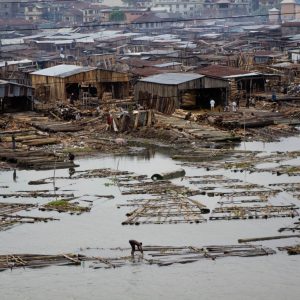The Stream, February 22: Deadline Arrives For Evacuation of Dakota Access Protest Camp
The Global Rundown
After months of fighting the Dakota Access oil pipeline, the “water protectors” face mandatory evacuation from a protest camp in North Dakota. Meanwhile, the Trump administration may roll back recent regulations meant to improve U.S. pipeline safety. Australia plans to review foreign investment in critical infrastructure, including water systems. Residents of La Paz, Bolivia are adapting to water rationing amid a stubborn drought. Low water levels in the Cauvery River Basin could force officials to curb water supplies to Bengaluru, India. Government water releases to protect California salmon are legal and necessary, according to an appeals court ruling. Peru may issue bonds to finance billions of dollars for water infrastructure projects.
“A lot of them are going to stay and they’re not going to give up, no matter what army they bring in to make people back off.” –Lewis Grassrope, a leader at the Oceti Sakowin camp near the Dakota Access oil pipeline in North Dakota, referring to protesters there who intend to resist a government order to evacuate the site by this afternoon. Construction resumed this month on the contentious pipeline, which has been opposed over concerns about water, the destruction of sacred sites, and climate change. (Reuters)
In context: Learn about the historic significance of the Dakota Access protests.
By The Numbers
2/3 Reduction in average daily water use in Bolivia, where a deep drought still grips La Paz. Popular Science
$3 billion Cost of water infrastructure projects over the next four years that Peru may finance by selling bonds. Reuters ; Andina
62 percent Decline, from this time last year, in water levels at two major reservoirs supplying Bengaluru, the capital of India’s Karnataka state. The dwindling supplies could force officials to curb water flows to the city until monsoon rains arrive in June. Deccan Herald
Science, Studies, And Reports
Australia plans to review foreign investment in critical infrastructure systems to protect national security from outside influence, according to a government paper outlining a new infrastructure oversight program. The most sensitive infrastructure identified includes water, electricity, communications, and ports. Reuters
On The Radar
A U.S. appeals court in California ruled in favor of government actions to release water into the Klamath River to support salmon. The releases, which occurred during California’s drought in 2013, were opposed by groups that argued the water should have gone to farmers in the Central Valley. San Francisco Chronicle
Proponents of U.S. pipeline safety worry that regulations requiring tighter leak detection and monitoring will fall by the wayside under the administration of Donald Trump. Oil and gas industry groups have said the regulations, finalized during the Obama administration but not yet implemented, are an overreach. Bloomberg
In context: Learn how oversight laws apply to pipelines like Line 5 in the Great Lakes.
A news correspondent for Circle of Blue based out of Hawaii. She writes The Stream, Circle of Blue’s daily digest of international water news trends. Her interests include food security, ecology and the Great Lakes.
Contact Codi Kozacek




